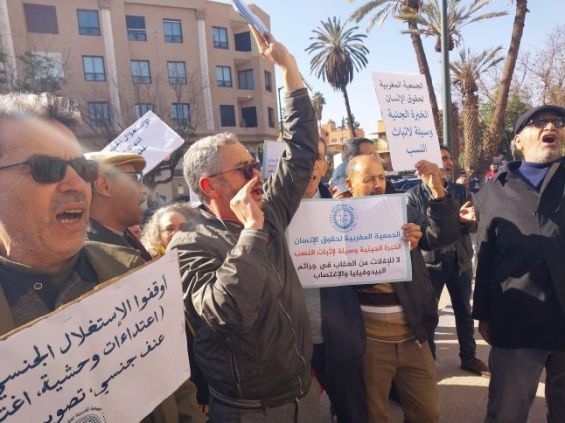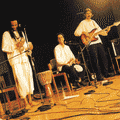After a new hearing this Wednesday afternoon in Marrakech, as part of the trial of three defendants in the repeated gang rape of a minor with a mental disability in El Attaouia, the judges are now deliberating.
Activists have asked the criminal chamber of first instance at the Court of Appeal to consider the DNA test results ordered by the prosecution after the 13-year-old gave birth. Added to the case file on February 12, this evidence confirms the biological link between the newborn and one of the three defendants, aged 60 to 72, who are being prosecuted in detention.
Omar Arbib, President of the local section of the Moroccan Association for Human Rights (AMDH-Marrakech Menara), told Yabiladi that the «scientific evidence» against them is irrefutable, and «must lead to tougher penalties». On the eve of Wednesday’s hearing, the NGO, which has become a civil party, reiterated its «firm condemnation» of the acts in question and the «violation of human dignity» they represent. The minor gave birth at the Kelâa des Sraghna hospital on January 10. «The civil party is now represented by 18 lawyers», Arbib confirmed.
Considering the new facts, the NGO demanded «that the indictment be legally adapted to ensure the child’s right to an identity, in accordance with the Convention on the Rights of the Child, specifically Article 7, which stipulates that the child must be registered immediately after birth and has the right to a name, a nationality, and, as far as possible, the right to know their parents».
The main defendant is being prosecuted under articles 471, 475-2, 485, and 488 of the Penal Code for the abduction of a minor with a mental disability, and rape with violence leading to the loss of the hymen. The second is charged with abduction of a minor and rape with violence, under articles 471, 475-2, and 485. The third faces penalties under articles 471, 475-2, and 485 of the same text.
Calls for a judicial reform in line with advanced principles
The association has called for «more severe and deterrent penalties», to make this trial «exemplary in its response to crimes that constitute serious human rights violations, with guarantees of reparation for the victim, her child, and her family».
This trial is unfolding in a context where the use of DNA testing as proof of parentage is debated, both in the application of penal provisions and in the reform of the Moroccan Family Code. In this case, the association believes that the proceedings highlight «the need for an overhaul of the Penal Code, which must expressly recognize pedocriminality and the rape of minors as physical and psychological sexual violence», while ensuring «the best interests of the child».
Along the same lines, the NGO argued that «any refusal or circumvention of the obligation to prove parentage by DNA testing in amendments that could be introduced into the Family Code would render these amendments meaningless, perpetuating inequalities that ignore the rights of victims and the best interests of the child».
In the same vein, the association called for the implementation of «a large number of the recommendations made to Morocco, following the adoption by the Human Rights Council in March 2023 of the Universal Periodic Review report». These recommendations total 306, more than 30 of which specifically address children’s rights.





 chargement...
chargement...












